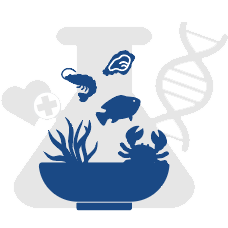Harnessing Aquatic Foods for Healthy People, Healthy Planet, and Shared Prosperity
Big Splashes Over Five Years, 2020–2025
Global Impact from WorldFish Research and Innovations
people, including women and children, nourished adequately with aquatic foods integrated in their diets
women and people from other marginalized groups empowered with greater access to resources, markets, and decision-making in the fisheries and aquaculture sector
households increased their incomes through increased sustainable production of aquatic foods
hectares restored through sustainable/ improved management of natural resources
MT of fish, seaweed, and other aquatic foods produced with reduced greenhouse gas emissions and greater resource efficiency
On behalf of WorldFish I extend our profound sympathy and sincere condolences to the Royal Family’.
The Latest
Stay up-to-date with the latest news and developments in research and innovations across aquatic food systems.
WorldFish Advances Resilient Aquatic Food Systems at the 3rd International Conference on Sustainable Fisheries (ICSF) 20
Updates
WorldFish participated in the 3rd International Conference on Sustainable Fisheries (ICSF), held from September 5–7, 2025, at Sylhet Agricultural University, Bangladesh…
Climate and Environmental Sustainability • 10 Oct 2025
Read MoreToward a More Equitable Blue Economy: Exploring Aquaculture Pathways for Women and Youth in Coastal Kenya
Blog
As part of the Asia-Africa BlueTech Superhighway (AABS) project, WorldFish is examining how aquaculture—particularly Integrated Multi-Trophic Aquaculture (IMTA)—can…
Social and Economic Inclusion • 09 Oct 2025
Read MoreFrom Traditions to Triumph: Premalata’s Success with Solar-Dried Fish in Odisha
Impact Story
Premalata Behera, a 40-year-old member of Maa Women Self Help Group and resident of the Dalimbapur fishing village, comes from a long line of coastal fishers in Odisha,…
Nutrition and Public Health, Social and Economic Inclusion • 08 Oct 2025
Read MoreBig Facts on Aquatic Foods
600
million number of people around the world who depend on small-scale fisheries and aquaculture for their livelihoods.
204
million tons - the volume of aquatic food production by 2030.
60
million - number of people engaged in the primary sector of fisheries and aquaculture in 2018.
24
trillion - the value of the ocean economy, including fisheries, shipping lanes and tourism.




